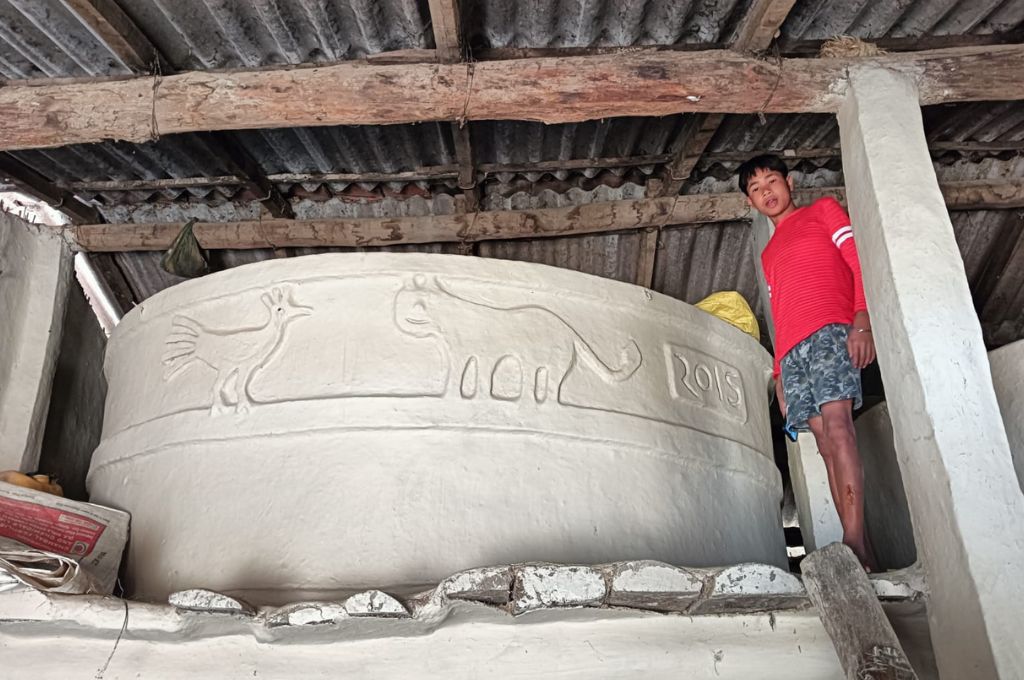“Drought or famine, the Tharus will survive”

The Tharu tribe is a forest-dwelling community based in Uttar Pradesh’s Lakhimpur Kheri district. Members of the tribe inhabit 47 villages in the reserved forest area of Dudhwa National Park. The forest is an integral part of their lives and cultural traditions.
Nivada Rana, a forest rights activist and member of Tharu Adivasi Mahila Mazdoor Kisan Manch says, “Mitti (mud) taken from the shores of the ponds and jheels (lakes) is very auspicious to us. We take a small piece of mud and worship it before construction of a new house begins. When there’s a wedding in the family, one of the rituals involves the newly-weds using the mud from the jheel to build a chulha (stove).”
The Tharu houses also have more tangible benefits from the forest as it provides them sustainable construction materials such as grass, wood, and mud. The roofs of the houses are built using leaves and the walls are made by mixing tree stems with mud. The mud and grass act as insulators that protect against extreme heat and cold conditions.
These houses are resilient to the various natural disasters that the villages experience. Due to its proximity to the Mohana river, which overflows during the monsoon, the area is prone to seasonal floods. Keeping this in mind, the houses have raised platforms supported by wooden pillars, and large granary structures are constructed under them to store the grains. Sahvaniya Rana, another member of the collective, says, “If there’s a drought or a famine, the world may suffer but the Tharus will survive longer as we have grains and cereal reserves for two years.”
However, the tribe is slowly losing its culture. Nivada says, “The younger generation does not want to put in the hard work required to make mud houses.”
There is another reason that the youth from the community are reluctant to invest their energy in the traditional Tharu ways of living. “They [the younger generation] do not want to get into conflict with the forest department to access resources from the forest.”
Although the Forest Rights Act, 2006, recognises the need for forest-dwelling communities to access natural resources such as non-timber forest products and medicinal plants, the forest department continues to limit the Tharu people’s entry. The Tharus are largely dependent on agriculture for their sustenance as they grow their own grains, fruits, and vegetables. Since they live in a buffer zone, there are various restrictions on development activities. They lack schools and mobile networks even as they continue to fight for their rights over the land they call home.
Astha Chaudhary and Dipti Arora are research scholars studying human–wildlife interactions in Uttar Pradesh. They are associated with the Coexistence Consortium.
—
Know more: Learn how deforestation is creating human-wildlife conflict in Kashmir.
Do more: Connect with the authors at aastha21090@gmail.com and diptiarora60@gmail.com to learn more about and support their work.



